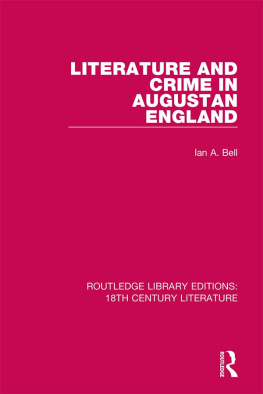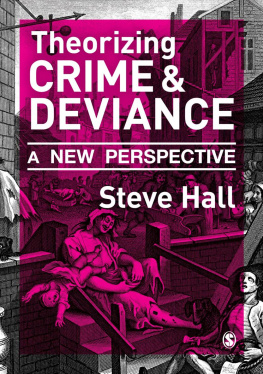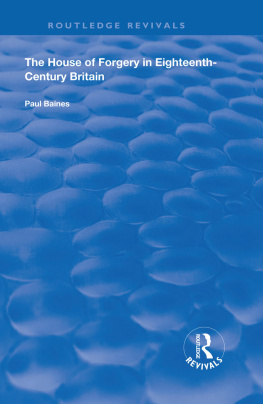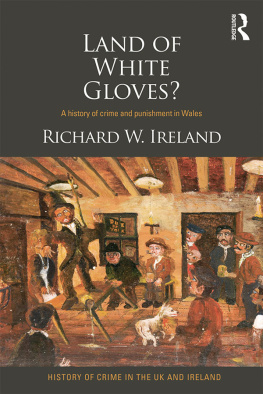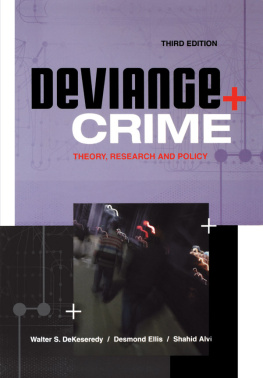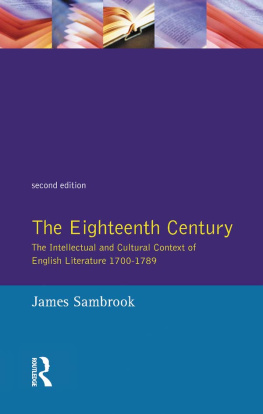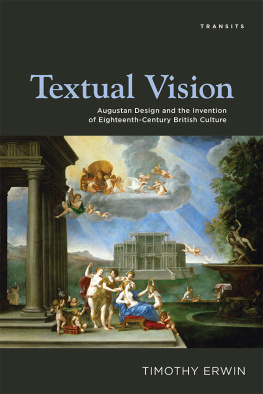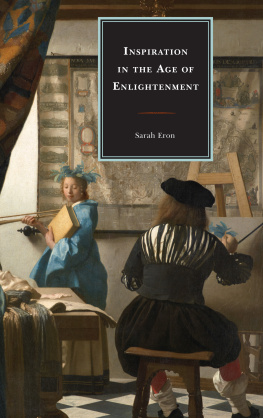ROUTLEDGE LIBRARY EDITIONS:
18TH CENTURY LITERATURE
Volume 2
LITERATURE AND CRIME IN AUGUSTAN ENGLAND
LITERATURE AND CRIME IN AUGUSTAN ENGLAND
IAN A. BELL

First published in 1991 by Routledge
This edition first published in 2020
by Routledge
2 Park Square, Milton Park, Abingdon, Oxon OX14 4RN
and by Routledge
52 Vanderbilt Avenue, New York, NY 10017
Routledge is an imprint of the Taylor & Francis Group, an informa business
1991 Ian A. Bell
All rights reserved. No part of this book may be reprinted or reproduced or utilised in any form or by any electronic, mechanical, or other means, now known or hereafter invented, including photocopying and recording, or in any information storage or retrieval system, without permission in writing from the publishers.
Trademark notice: Product or corporate names may be trademarks or registered trademarks, and are used only for identification and explanation without intent to infringe.
British Library Cataloguing in Publication Data
A catalogue record for this book is available from the British Library
ISBN: 978-0-367-44270-5 (Set)
ISBN: 978-1-00-302027-1 (Set) (ebk)
ISBN: 978-0-367-81891-3 (Volume 2) (hbk)
ISBN: 978-1-00-301067-8 (Volume 2) (ebk)
Publishers Note
The publisher has gone to great lengths to ensure the quality of this reprint but points out that some imperfections in the original copies may be apparent.
Disclaimer
The publisher has made every effort to trace copyright holders and would welcome correspondence from those they have been unable to trace.
Literature and Crime in Augustan England
Ian A. Bell

First published 1991
by Routledge
11 New Fetter Lane, London EC4P 4EE
Simultaneously published in the USA and Canada
by Routledge
a division of Routledge, Chapman and Hall, Inc.
29 West 35th Street, New York, NY 10001
1991 Ian A. Bell
Typeset in 10/12 Times by
Columns Ltd, Reading
Printed in Great Britain by
TJ Press (Padstow) Ltd, Padstow, Cornwall
All rights reserved. No part of this book may be reprinted or reproduced or utilized in any form or by any electronic, mechanical, or other means, now known or hereafter invented, including photocopying and recording, or in any information storage or retrieval system, without permission in writing from the publishers.
British Library Cataloguing in Publication Data
Bell, Ian A. (Ian Arthur)
Literature and crime in Augustan England.
1. English literature 17021745. Critical studies
I. Title
820.9005
Library of Congress Cataloging in Publication Data
also available
ISBN 0-415-02231-2
For Seona and Lewis
Buttock and Twang, which is walking to be picked up, and, frightening him that does it with her pretended husband, after she has picked his pocket, so that the fool runs gladly away without his watch or money.
Buttock and File, which is the same with the other; only this is the better-natured beast of the two, and performs her stage before she takes her wages, which may be some satisfaction to the ass she carries.
From the Memoirs of the Right Villainous John Hall, 1708
Contents
I would like to thank a lot of people for their help in writing this book. My knowledge of Augustan writing has been greatly enriched by discussions with Duncan Isles and Shane Flynn, and James Ogden was most helpful in lending me books. Bill Hines and Meirion Derrick of the Law Library, UCW Aberystwyth provided invaluable assistance, above and beyond the call of duty, and my legal advisers include Richard Ireland and Chris Harding of the Law Department, UCW Aberystwyth, and James Meldrum, Deputy Director of the Scottish Courts Administration. My main intellectual obligation is to Philip J. Rawlings, of Brunei University, whose knowledge of the practices of eighteenth-century crime has been as useful to me in preparing this volume as it will prove to be to him in the furtherance of his academic career. But my most profound gratitude must go to my wife and family, who have put up with a distant and distracted figure in their midst while I was thinking this project through, and who were unfailingly positive and supportive throughout. To them, and to all the others mentioned, my heartfelt thanks. Remaining errors or inconsistencies are entirely my responsibility.
Ian A. Bell
Llanbadarn Fawr
Aberystwyth
The photographs of William Hogarths Industry and Idleness sequence are reproduced by courtesy of the Trustees of the British Museum.
A crucial dimension for understanding the reaction to deviance both by the public as a whole and by agents of social control, is the nature of the information that is received about the behaviour in question.
This book is a study of information about deviance, and misinformation, and disinformation. It concentrates upon the diverse representations of crime and legality in early eighteenth-century England, on the ways in which the various constituent performers in these cultural practices were portrayed, and on the significance of such representations for their producers and consumers. It is, I hope, an exercise in literary criticism at the service of wider cultural history, where the close reading of works of literature will be informative not just about the internal ordering of those texts or about the workings of their authors minds, but also about the creation and dissemination of ideology and the diversities of cultural practice. By investigating the kind of information the Augustan public received from its press about deviance and deviants, I want to explore the contemporary ideological potency of the ideas of crime and criminals, the areas of ideological fissure they reveal, and the possible supportive and adversary roles of literature in their distribution. There are obviously a great many areas of uncertainty and trepidation in this endeavour and lest you feel that you have fallen among thieves and swindlers already, I will set out before you at the very beginning the terms of the arrangement.
My original thought for a title for this book was Buttock and Twang, as defined by the Right Villainous John Hall in 1708, finding in that evocative phrase an image for the recognised protocols and procedures of this kind of critical study. Following the established patterns of earlier commentators on historical crime, my plan was to attract gullible readers with a lurid catchpenny title and then, having relieved them of their money, scare them off, not with the sudden furious appearance of a pretended husband, but with the predictably alarming intervention of Antonio Gramsci or Louis Althusser. I was sensitive that some tender readers might well find the prospect of the irate E. P. Thompson bursting out from behind a thicket yet again sufficiently intimidating to send them scurrying away elsewhere. But wise caution prompts a more scholarly mode of address and a more sober title, albeit one in which every term is wrapped round a mystery or uncertainty. Let us take these terms individually and see what confusion lies bound within each one.
The opening word literature looks relatively uncontroversial, but still requires some preliminary definition. It would certainly be quite possible to write about this topic from within the traditional Eng. Lit. perspective of the magical and universal powers of identifiable literary value. In such a case, great novels, plays and poems alone would provide the materials, and the conclusion would be restricted to clarifying the views of certain allegedly great authors on these weighty matters. As a project in historical or cultural study, any enterprise of this kind becomes uninformative and highly reductive, and it is by no means my intention to confine myself to this attractively privileged but narrow way of thinking. A more sympathetic and potentially more informative approach to the subject requires a less judgemental attitude to eighteenth-century writing, and I would not wish to have to keep apologising for the unwholesomeness or shabbiness of many of the texts under review. An unthinking attachment to those traditional assumptions about literary merit distorts the otherwise stimulating early essays in this field by F. W. Chandler and others, rendering them now of no more than antique or curiosity value. My scope is of necessity wider than that. I take literature in its least restrictive meaning, requiring it to cover everything written or printed, leaving evaluative notions of literary merit aside, and enthusiastically incorporating unorthodox texts like Hogarths prints or the Old Bailey Session Papers or Boswells private journals. And I will be unembarrassed in my use of popular writing. As Raymond Williams has demonstrated, an all-embracing use of the word literature, associating it with literacy rather than with literariness is peculiarly appropriate to the publishing and reading practices of the eighteenth century. So although the best-known novels and poems and the like will inevitably be prominent in the following discussion, and the names of the most revered authors will appear frequently, the real focus of attention must be the press as a whole rather than a few tendentiously selected and unrepresentative universal texts.

